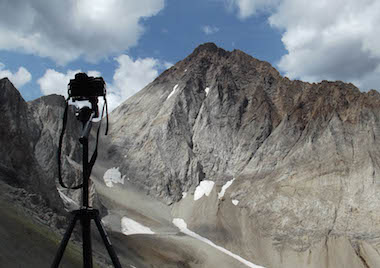Author: Mike Janssen
Mike has held the role of digital editor since 2014. Before becoming editor, he covered public radio and digital initiatives in public media for Current. Mike has also written for a variety of publications as a freelancer, was a Public Media Corps fellow, and has hosted talk and music shows on community radio stations in the Washington, D.C., area. In his spare time, he enjoys spending time with his family, playing banjo, cooking, and making coffee and cocktails.
Monday roundup: PBS ombud takes up purported Harper’s spat; WAMU euthanizes Animal House
Plus: Public radio's shifting economics, and The Moth crosses the pond.By Mike JanssenOctober 13, 2014Wilson in farewell to NPR: “Thank you for the best six years of my life”
Kinsey Wilson, NPR’s outgoing chief content officer, sent this farewell email to NPR staff Friday. When I arrived at NPR six years ago, my wife ...By Mike JanssenOctober 11, 2014Public radio organizations weigh in on FCC public file proposal
A proposal to require noncommercial radio stations to disclose program funders and share other public file records online has prompted widely varying ...By Mike JanssenOctober 10, 2014Friday roundup: StartUp podcast raises $1M; Alaska DJ killed
Plus: Doctors meet Alex the Muppet, and a Florida college sells two stations.By Mike JanssenOctober 10, 2014Wednesday roundup: St. Louis station files complaint over Ferguson fees; Washington talks Snap
Plus: A familiar scam gets a makeover, and reasons to love Zoom.By Mike JanssenOctober 8, 2014Tuesday roundup: NPR ombud examines climate coverage; Wisconsin station mourns reporter’s death
Plus: A remembrance of David Candow, and a community radio host's legal threat.By Mike JanssenOctober 7, 2014Media-watchers check in on PBS/Harper’s kerfuffle
The dustup, or at least perceived dustup, between Harper’s and PBS is getting more attention, with the magazine’s publisher sharing more details with the Columbia ...By Mike JanssenOctober 7, 2014NPR announces new COO, departure of Chief Content Officer Kinsey Wilson
NPR President Jarl Mohn, who stepped into the role July 1, announced today a new COO and the departure of Kinsey Wilson, ...By Mike JanssenOctober 6, 2014Monday roundup: WNYC revamps Schoolbook.org, CPB gives NPR $1 million for foreign coverage
Plus: American Graduate Day carriage grows, and a NewsHour segment prompts scrutiny.By Mike JanssenOctober 6, 2014FCC report aims to play up payout from spectrum auction
An FCC-sponsored report projecting huge potential paydays for television broadcasters in next year’s spectrum auctions could prompt public TV licensees to reconsider ...By Mike JanssenOctober 2, 2014Public broadcasters fight limits on shooting in wilderness areas
The proposed rule change could hamper productions at public TV stations in Oregon and Idaho.By Mike JanssenOctober 2, 2014As methods for online giving grow, stations should prepare for ‘different fundraising landscape’
A mobile tipping point came earlier this year. For the first time, mobile devices accounted for 55 percent of Internet usage, according ...By Mike JanssenOctober 2, 2014Letter: “Greater Public is not retreating from digital”
The president of Greater Public responds to a commentary.By Mike JanssenSeptember 19, 2014Tiny news team at Lakeland Public Television fills gap left by commercial TV
Station managers who worry they can’t afford to do news and public affairs have only to look at Lakeland Public Television in ...By Mike JanssenSeptember 19, 2014Kansas City’s KCPT picks up gauntlet to expand local news coverage
Three years ago, a delegation from Kansas City Public Television, including the board chair, trekked out to San Diego’s KPBS to evaluate ...By Mike JanssenSeptember 19, 2014



